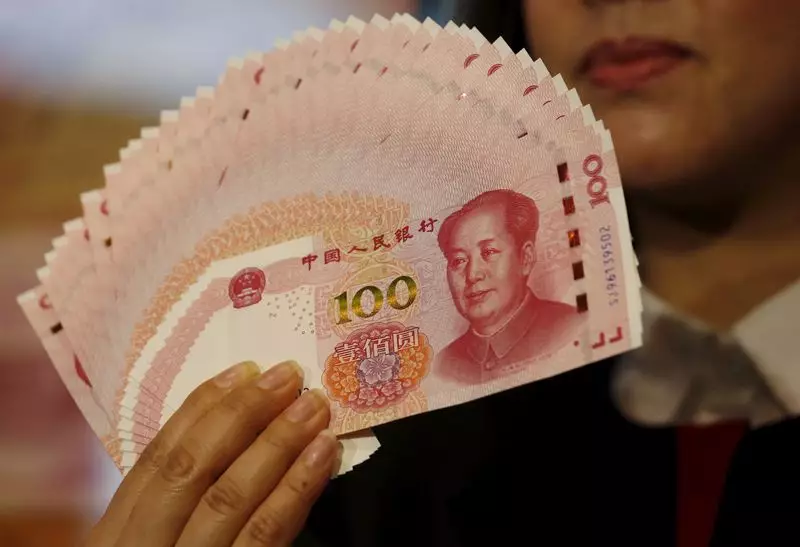As China’s economy grapples with the repercussions of a significant slowdown, a worrying phenomenon has emerged—fraudsters are capitalizing on the misfortunes of those economically distressed. These deceitful schemes promise lavish rewards such as prize money and debt restructuring but often deliver nothing but disappointment. This situation is reminiscent of the psychological tension and moral dilemmas presented in the series “Squid Game,” albeit without the life-or-death stakes faced by the show’s characters. In this context, an analysis of these exploitative practices reveals a grim aspect of modern economic realities in China.
Among the most notable of these schemes are “isolation challenges,” which have gained traction through platforms like Douyin, China’s equivalent of TikTok. Participants pay substantial fees, sometimes reaching thousands of yuan, for the opportunity to compete in scenarios resembling reality game shows—albeit devoid of safety measures. Contestants are subjected to stringent regulations, such as limited bathroom breaks and strict monitoring that can lead to penalties for seemingly minor infractions. Cases have emerged where courts have deemed the contracts associated with these challenges unfair, highlighting the systemic flaws within these enticing yet perilous setups.
For instance, a recent ruling in Shandong Province resulted in a player receiving a refund after being disqualified for merely adjusting their pillow. The ruling symbolically marked a resistance against exploitative practices while simultaneously emphasizing the need for legal reforms to protect consumers from illusory promise makers.
Parallel to the rise of isolation challenges is the emergence of dubious debt relief claims. Regulators are increasingly warning citizens about “debt intermediaries” that assure individuals of quick fixes for their financial predicaments in exchange for hefty fees. These services often promise loan restructuring and credit improvements; however, they carry significant hidden costs—up to 12% of the loan amount—in addition to the risk of personal data exploitation.
Central bank data illustrates the severity of the situation, with household loans in China reaching an astronomical 82.47 trillion yuan. In times of economic downturn, these figures reveal not just the volume of debt but also highlight a growing dependency on questionable solutions that further entrap individuals in financial struggles. The juxtaposition of rising loan figures against the backdrop of increasing fraudulence paints a vivid picture of a society under stress—one where rampant optimism about financial recovery is plagued by fraud and deception.
In response to the alarming surge in fraudulent activities, Chinese regulatory agencies, including the National Financial Regulatory Administration (NFRA), have initiated campaigns urging citizens to critically evaluate such offers. Yet the message can only go so far when economic desperation clouds judgment. As the economic landscape continues to deteriorate, the scope for such scams expands, drawing in vulnerable populations unsure of where to turn for legitimate help.
Moreover, the platform’s responsibility to oversee and intervene against such fraudulent activities also comes into question. Douyin and other related platforms must collaborate with regulatory bodies to ensure users are protected against exploitation. Increased transparency and a more rigorous moderation process may serve as essential steps to restore trust and protect consumers.
The underlying theme that runs through the narratives of isolation challenges and debt relief scams is a warning: in a rapidly changing economy plagued by uncertainties, individuals must remain vigilant against nefarious schemes. While the allure of quick solutions may be tempting, understanding the grim realities behind these scams is crucial.
As we head further into an era marked by economic turbulence, it is essential for society, government, and digital platforms to work cohesively in ensuring that no one falls victim to scams rooted in deception. The story encapsulates a profound commentary on societal resilience and the need for unwavering vigilance in the face of adversity. Understanding and addressing the dynamics of economic distress and fraud are critical for fostering a healthier, more transparent market environment in China.

